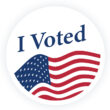New Mental Health Programs Coming to Some Chicago Suburbs
December 4, 2022
In the November election, voters in five suburban Chicago counties were asked, “Do you support raising property taxes by a small percentage to fund mental health services in our area?”
The answer was a definite yes in all but one of the suburbs. The affirmative votes will create seven-member local mental health boards which will be appointed by county or township supervisors.
These boards will assess the needs in their communities, set budgets and tax levies, and then oversee publicly subsidized therapy, counseling, and medical care for those in need. The boards will distribute grants to service providers for domestic violence, alcoholism, autism, behavioral and emotional issues.
Advocates for the funding of community mental health services say this arrangement will be especially helpful for those who are coping with anxiety or depression and need a drop-in service so they can talk with a counselor before their issues reach a crisis stage.
These boards are known as “708 Boards” because they are operating under the provisions of H.B. 708, Illinois Revised Statutes, also known as the Community Mental Health Act.
The mental health boards were approved in three DuPage County townships as well as all of Will County, a county where Nash Disability Law has served thousands of disability clients including many among the 70,000 residents of Joliet. They were also approved in:
- Schaumburg township (including Elk Grove, Hanover Park, Hoffman Estates, Rolling Meadows, Roselle, Schaumburg and Streamwood)
- Wheeling Township (including Arlington Heights, Buffalo Grove, Rolling Meadows, and parts of Des Plaines, Mount Prospect, Palatine, Northbrook, Glenview, and Prospect Heights).
- Vernon Township (including Vernon Hills, Lake Forest and Mundelein)
The Vernon Township 708 Board will be the first in Lake County. Mental health advocates hope that a domino effect will follow, and other townships and cities like Waukegan will approve the creation of more 708 Boards.
The cost for the mental health boards is projected to be relatively small. For example, in Wheeling Township where voters backed the proposal, the cost will be about $32 a year for the typical homeowner. In Vernon Township, for instance, the tax rate was set at 0.037%, for a cost of about $49 to the average homeowner. Officials there estimate that the township will raise almost $1.5 million a year to support mental health services. Will County set the rate at 0.05%.
Across Illinois, there are dozens of local mental health boards. Kane County has nine townships with publicly subsidized mental health boards, while Kendall and McHenry counties have countywide programs.
Some are long-established. In the November 1970 general election voters in Aurora, the second most populous city in Illinois approved a modest tax increase to support a local mental health board, which is now operating successfully under the banner of INC Mental Health Alliance.
Cook County has at least eight townships with mental health boards. Evanston (another one of the key Illinois cities that Nash Disability Law serves) has a local mental health board, and Nash disability attorney Dan Rosen was previously a member of Evanston’s board.
Supporters of 708 boards believe that once residents of cities like Blue Island see the results the boards can produce, they will want it for their communities.
It is not uncommon for an individual coping with a mental health crisis to have to wait months to see a psychiatrist or other mental health professional. These new mental health services will help provide more timely care. We at Nash Disability Law applaud the voters who recognized the value of these services and stepped up to support their neighbors in the Chicago suburbs, communities we proudly serve, too.


